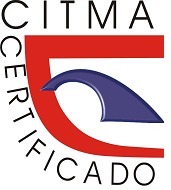Digital literacy and digital skills: A look from eLAC2024
Keywords:
digital literacy, digital skills, eLAC2024, skills, digital technologiesAbstract
The rise and proliferation of digital technologies impacts today's society. Technological advances include goals related to access to information, to provide universal and affordable access to the Internet and eliminate digital divides. From this area, Latin American countries generate and insert themselves into regional policies and regulatory frameworks to promote innovation and technological development. There are various challenges related to digital literacy and digital skills. This vision demonstrates the holistic perspective it has: Digital Literacy and Digital Skills in development agendas. The purpose of this article is to analyze the incidence of digital literacy and digital skills within the framework of the Digital Agenda for Latin America and the Caribbean. The methods used in the research were bibliographic review and documentary analysis. As a result, it was evident that from the perspective of the Digital Agenda for Latin America and the Caribbean, it is demonstrated that Digital Literacy and Digital Skills are essential elements that are part of universal and inclusive digitalization and impact digital transformation processes. The bibliographic review allowed us to know the theoretical foundations that allowed us to understand Digital Literacy and Digital Competencies.
References
Avello, R., López, R., y Vázquez, S. (2016). Competencias TIC de los docentes de las escuelas de hotelería y turismo cubanas. Revista Universidad y Sociedad, 8 (1): 63-69. http://rus.ucf.edu.cu
Consejo de Ministros de España (2023). Agenda Digital para España 2026. https://avancedigital.mineco.gob.es/
Comisión Económica para América Latina y el Caribe (2023). Estrategia de Transformación Digital para Chile. https://www.cepal.org/
Esteve Mon, F. M., Gisbert Cervera, M., & Lázaro Cantabrana, J. L. (2016). La competencia digital de los futuros docentes: ¿cómo se ven los actuales estudiantes de educación? Perspectiva Educacional, Formación de Profesores, 55(2): 38-54. https://www.redalyc.org/
Flores Lueg, C., & Roig Vila, R. (2016). Diseño y validación de una escala de autoevaluación de competencias digitales para estudiantes de Pedagogía. Pixel-Bit. Revista de Medios y Educación, (48): 209-224. https://www. https://www.redalyc.org/
Ferrari, A. (2012). Digital competence in practice: An analysis of frameworks. Sevilla: European Commission, Joint Research Centre (JRC).
George, C. (2018). Alfabetización digital en la dimensión didáctica de la práctica docente, elementos para su análisis. Revista Educiencia, 3(2): 30-39. https://dialnet.unirioja.es/ Gobierno de México (2013). Estrategia Digital Nacional. https://www.gob.mx
Joint Information Systems Committee (JISC) (2014). Developing digital literacies. http://www.jisc.ac.uk/developingdigitalliteracies
Illera, J. L. (2004). Las alfabetizaciones digitales. Revista Bordón, 56(3-4): 431-441. http://www.ub.edu/
Krumsvik, R. (2008). Situated learning and teachers’ digital competence. Education and Information Technologies, 13(13): 279-290.doi:10.1007/s10639-008-9069-5.
Larraz, V., Espuny, C. & Gisbert, M. (2010). Los componentes de la competencia digital. https://docplayer.es
Martínez, M., Sádaba, C. & Serrano, J. (2021). Meta marco de la alfabetización digital: análisis comparado de marcos de competencias del siglo XXI. Revista Latina de Comunicación Social, 79, 76-110, Siglo XXI. https://www.doi.org/10.4185/RLCS-2021-1508
Ministerio de Tecnologías de la Información y Comunicación (2023). Agenda Digital. https://www.mitic.gov.py
Ministry of Economic Affairs and Communications (2022). Estonia’s Digital Agenda 2030. https://www.mkm.ee
Organización de Naciones Unidas (2022). Agenda Digital para América Latina y el Caribe (eLAC2024). https://www.cepal.org
New Media Consortium (2017). Digital Literacy in Higher Education, Part II: An NMC Horizon Project Strategic Brief. https://library.educause.edu
Organización de Naciones Unidas para la Educación, la Ciencia y la Cultura (2022). Qué debe saber sobre la alfabetización. https://www.unesco.org/es
Pangrazio, L., & Sefton Green, J. (2021). Digital Rights, Digital Citizenship and Digital Literacy: What's the Difference? Journal of New Approaches in Educational Research, 10(1): 15-27. https://dialnet.unirioja.es
Programa de las Naciones Unidas para el Desarrollo (2022). Plan Estratégico 2022-2025 del Programa de las Naciones Unidas para el Desarrollo. https://strategicplan.undp.org/es/
Universidad de Guanajuato (2021). Diferencias entre competencia digital y alfabetización digital. https://www.ugto.mx/
Vuorikari, R., Kluzer, S. and Punie, &. DigComp 2.2: The Digital Competence Framework for Citizens, EUR 31006 EN, Publications Office of the European Union, Luxembourg, 2022, ISBN 978-92-76-48882-8, doi:10.2760/115376, JRC128415
Copyright © 2024, Autores: Álvarez Chacón, Zayna
Published
How to Cite
Issue
Section
License
Copyright (c) 2024 Zayna Alvarez Chacón

This work is licensed under a Creative Commons Attribution-NonCommercial 4.0 International License.












